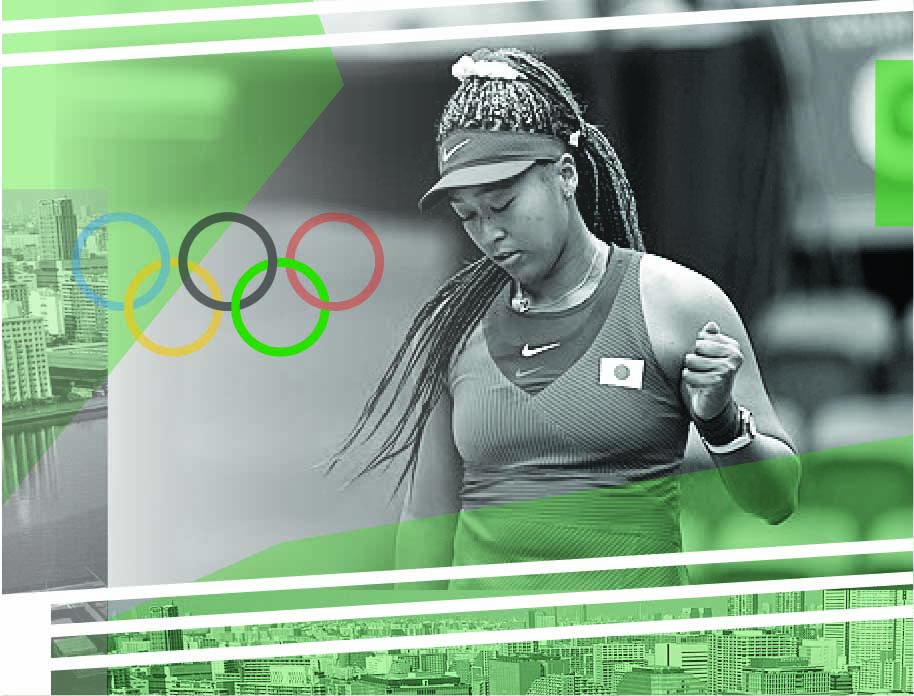
Dr Guy Podoler
Senior Lecturer in Korean Studies at the Department of Asian Studies of the University of Haifa. His research interests are memory and commemoration, sports heritage, sport nationalism, and sport diplomacy. He is senior book review editor of Asian Journal of Sport History and Culture.
Email: gpodoler@research.haifa.ac.il

Section 4: Fandom & National Identity
- The Tokyo 2020 Olympic Games: British imperial identity affirmed
- How much is too much home-nation focus in Olympic coverage?
- South Korea’s changing status and perspective on Japan
- National and ethnic Chinese identities on the Indonesian badminton court
- The Men’s 1500 metres: Not quite erasing the ghosts of history
- Home advantage in the Summer Olympic Games: evidence from Tokyo 2020 and prospects for Paris 2024
- Sports betting and the branded purity of the Olympics
- Communicating corporate social responsibility at the Tokyo 2020 Olympic Games
- Silence in the stands: Does it matter for fans?
- Fans as MVP, or the need for sensuous audiences in sport
- Red, white, and rivalry: A brief discussion of United States rivalry at the Tokyo Olympic Games
- Empty stadiums and the other sites of Olympic fandom
- Pop culture diplomacy: Japan’s use of videogames, anime to promote the Olympics and appeal to younger audiences
- Fans as MVP, or the need for sensuous audiences in sport
- Red, White, and Rivalry: A Brief Discussion of United States Rivalry at the Tokyo Olympic Games: Olympic and Paralympic Analysis 2020: Media, Fans and the Politics of Sport
- Empty stadiums and the other sites of Olympic fandom
- At the intersection of COVID-19 and Tokyo Olympics 2020: Vlogs and the expression of Chinese nationalist sentiments
Sohn Kee-chung won the marathon in the 1936 Berlin Olympics. Sohn was a Korean, yet he competed for Japan under his Japanese name, Son Kitei, because his homeland was subjected to Japanese colonial rule (1910-1945). Sohn became a national hero in post-colonial South Korea, yet his gold medal is counted as Japan’s. Therefore, a controversy flared up on the eve of the Tokyo Olympics when it became known in South Korea that the Japan Olympic Museum displayed the picture of “Son Kitei” among the “Japanese Gold Medalists.”
This was but one in a series of incidents that were reignited by the Olympics and strained South Korea-Japan relations. When the website of the Games featured Dokdo – or Takeshima as the Japanese call it – as Japanese territory, South Koreans were outraged too. Controlled by South Korea but regarded by Japan as its own, the islets constitute one of the most heated issues between the two countries. The South Koreans also expressed deep concern when Japan would not ban the display of the rising sun flag – which for them is a symbol of the imperial and brutal colonizer – during the Games.
On their part, the Japanese had issues with the South Koreans. Japanese far-right groups expressed anger when the South Korean delegation hung banners in the Olympic Village with a paraphrase of a statement attributed to Yi Sun-sin, the admiral who fought the Japanese invaders in the 16th century and a national hero in Korea. The South Koreans took the banners down at the request of the International Olympic Committee, which reportedly also promised to ban the display of the rising sun flag. And, as South Korea organized an independent meal service for its athletes and announced it would also screen food for radiation – expressing concern over contaminated ingredients from Fukushima – Japanese conservative media and Diet members reacted, saying it was a hurtful act.
Tensions occurred, then, around matters that are at the heart of a nation’s identity: national history, territory, and national symbols – heroes, flags, and food. In light of the two nations’ historical past of colonizer and colonized which is yet to be resolved, these thorny issues were negotiated by a variety of actors, including the respective governments, politicians, Olympic Committees, media, and civic society groups and activists. On the South Korean side, some sought a boycott of the Games due to Japan’s approach.
The tension can, thus, be seen in two interrelated contexts. First, some of the tensions that resurfaced on the eve of the Games – namely, the issues of Dokdo, the rising sun flag, and the “Fukushima food” – were matters of contention back in 2019. In fact, relations have deteriorated since late 2018 over historical issues and Japan’s export curbs, thus by July 2021 they already hit a low point. Surveys conducted in 2019 and 2020 show that both South Koreans and Japanese view the historical disputes (sexual slavery, wartime labor) and the Dokdo/Takeshima territorial issue (which is also historical), as the most significant problems in the relationship by far. The tensions that resurfaced around the Olympics have, thus, further anchored the deadlock. Second, the governments were dealing with their own respective domestic concerns. Given the centrality of historical issues, both Japan’s conservative Prime Minister Yoshihide Suga (and the LDP) and South Korea’s progressive President Moon Jae-in (and the Democratic Party), demonstrated how attentive they were to their supporters at home.
In South Korea, Moon represents the political camp which, compared with the country’s conservatives, views history and nationalism from a tougher, much more critical approach towards Japan. Accordingly, Moon was highly critical of the 2015 agreement over the “comfort women” (sexual slavery) issue, which his conservative predecessor Park Geun-hye reached with Japan. In effect, the agreement has collapsed under his term.
This does not mean that deterioration was inevitable. Moon was considering the Olympics as an opportunity to visit Tokyo for the opening of the Games and for summit talks to lower the flames. Yet, the gap between the parties seemed wide: while South Korea demanded substantial talks over key issues, Japan was expecting “concrete steps” from South Korea and it was not willing to commit to the meeting’s length. Then an incident occurred that scandalized the South Koreans: Hirohisa Soma, deputy chief of mission at Japan’s embassy in Seoul, commented that “Moon is masturbating.” When Moon announced his decision not to visit Japan, a survey showed that over 65% of South Koreans supported it.
During the Games, Soma was recalled and no tensions occurred related to history and national sentiments. Seemingly, this is a positive setting for a post-Games summit. However, Moon has already set a high bar for a meeting by expecting Japan – the former colonizer – to make meaningful progress on historical issues, while Suga passed the ball to the Koreans – the former colonized – demanding they take concrete steps on those issues. This looks like an impasse. Even motivation to collaborate against a North Korean threat is not strong on the part of South Korea’s progressive government. Instead, the two Koreas have shown signs of improving relations lately. This time, reignited by the Olympics, matters of history and national identity (once again) demonstrate a critical role in South Korea-Japan relations.

